Fritextsökning
Artiklar per år
Innehållstyper
-

FDA approves first non-opioid pain reliever in over 20 years
For the first time in decades, a new type of acute pain medication that is not an opioid has been approved in the USA.
-

Marie Gårdmark: “What to expect from Trump’s second term?”
One may complain about the complex multinational system in EU, but it gives us some predictability that cannot be easily overturned by different member states political agendas, writes Marie Gårdmark in a column.
-
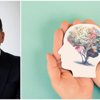
Life science trends 2025 – Neurology
New Alzheimer's drugs are beginning to be used in Sweden, more deals in the neuro sector are expected, and tools for deliver active substances across the blood-brain barrier are being developed. In addition, a new type of drug for MS is making its debut. This part of trend insights on life science 2025 is about neurology.
-

The US is leaving the WHO
The newly installed US President, Donald Trump, has issued an executive order for the US to leave the World Health Organization, WHO.
-

Life science trends 2025 – Part 1 obesity drugs
More obesity drugs are being launched this year following Novo Nordisk and Eli Lilly's previous successes with GLP-1 drugs. But the next big breakthrough in obesity has a different mechanism of action, writes Samuel Lagercrantz in the first article in a series of trend insights for 2025. Today: obesity.
-

FDA approves new cystic fibrosis therapy
A new treatment for cystic fibrosis has been approved by the U.S. Food and Drug Administration (FDA).
-

New cell therapy raises hope for curing type 1 diabetes – "Never succeeded before"
For the first time, a patient with type 1 diabetes has undergone an islet transplantation using genetically modified insulin-producing cells that do not require immunosuppressive drugs. "A major immunological breakthrough," says Professor Per-Ola Carlsson, who leads the clinical study, to Life Science Sweden.
-

Partial court victory for entrepreneur who lost his company
Swedish life science entrepreneur Mikael Kubista has won the first round against a law firm that he, along with other co-owners, sued for negligent advice in connection with losing his company, Tataa Biocenter.
-

Anna Törner: ”If I fall seriously ill, I’ll move to Finland”
”It is both undignified and undemocratic that cancer patients must travel to Finland to uphold a façade of fairness that does not truly exist”, Anna Törner writes in a column.
-

Investigations against AstraZeneca: ”Chinese interests may be behind them”
Why are there several investigations against AstraZeneca employees in China right now? Life Science Sweden continues to seek answers.
-
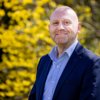
Lilly´s Nordic manager on Mounjaro launch in Sweden: "Patients deserve respect"
Another blockbuster diabetes and obesity drug has made its way into the Swedish market – with promises of a stable supply and availability for patients. “What we see is a significant unmet need, so we are expecting to have quite a good welcoming
-
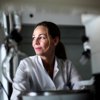
Her company is developing a new tablet form obesity drug
Obesity and diabetes are the primary targets of a new tablet treatment under development by Malmö-based Pila Pharma. The company’s ambition is to take on the billion-selling GLP1 analogues. ‘‘Basically, I expect all the beneficial effects that they have, but not the same side effect profile,’’ company founder Dorte X Gram said in an interview with Life Science Sweden.
-

Leo Pharma to cut 200 jobs and reorganize
Danish Leo Pharma cuts down on staff in its global operations. Around 200 positions will be cut, while 50 will be moved to Poland.
-
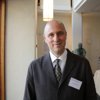
This years Nobel prize in medicine – “Changed the understanding of how genes are controlled”
This year’s Nobel Prize in Physiology or Medicine goes to the discovery that small RNA molecules, known as microRNAs, control how genes are regulated. Understanding the mechanism has changed our view of human biology and evolution, says KI Professor András Simon.
-

From lab to patient – the art of developing new antibody therapies
For 25 years, Danish company Genmab has been developing antibodies and has managed to get several drugs all the way to the patient. Esther Breij has been along for much of the journey and has experienced setbacks, but also huge discoveries. “It’s amazing when you succeed,” she says.
-

Anna Törner: ”Mom, do you think you’ll ever get married again?”
”I realize I’m slowly descending into that familiar statistical rabbit hole, where life’s biggest uncertainties are reduced to point estimates and confidence intervals”, Anna Törner writes in a column.
-

“We should avoid surgery if we can”
Since February this year, she has been Scientific Director Life Science at the Karolinska Institutet. Life Science Sweden met Anna Martling for a talk about role models, surgery and Sweden’s strengths and weaknesses in medical research.
-
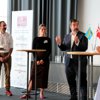
What will be the next big hype after obesity? – An expert panel highlighted their top picks
What will be the next big trend in life science? Everything from Alzheimer’s, Crispr and Omics were highlighted when the issue was debated at this year’s major life science event in Lund.
-

Anna Törner: Yes, I Am Sick, But Not Weak
”People often say that someone who is ill only has one wish—to get better. But I think that is not true. Someone who is ill also longs to be understood, to be respected, to not have their identity overshadowed by their condition”, writes Anna Törner in a column.
-

Danish obesity success causes recruitment problems in southern Sweden
The substantial expansion of Danish Novo Nordisk is affecting companies in southern Sweden, which are finding it increasingly difficult to compete for attractive staff.
-

Nobel Prize winner Torsten Wiesel turns 100: “Old men like me should use their experience to help the young”
In 1955, a young Torsten Wiesel jumped on a boat to the US and embarked on a fabulous career as a neuroscientist, crowned with a Nobel Prize for his work. Now 100 years old, he looks back on an intense life and his upbringing in Stockholm, Sweden, which shaped his desire to help the vulnerable in society.
-

“Conducting research at universities is becoming more and more like working at a research hotel”
The government wants Swedish research to focus on excellence and innovation, but can the two be combined? Life Science Sweden talks to Anna Falk, a professor at Lund University, about research policy, the constant hunt for funding in academia and what constitutes ‘fine research’.
-

Samuel Lagercrantz: “Companies that do this successfully will take the lead”
The development of new medicines and medical technologies should not focus too narrowly on prolonging life. It is equally important to develop treatments that relieve pain or eliminate painful symptoms, writes Samuel Lagercrantz in an editorial.
-

Total pipeline of pharmaceutical companies reaches a record high – 22,921 medicines are currently being developed
Despite the difficult economic times, pharmaceutical companies have never developed as many new drugs as now.